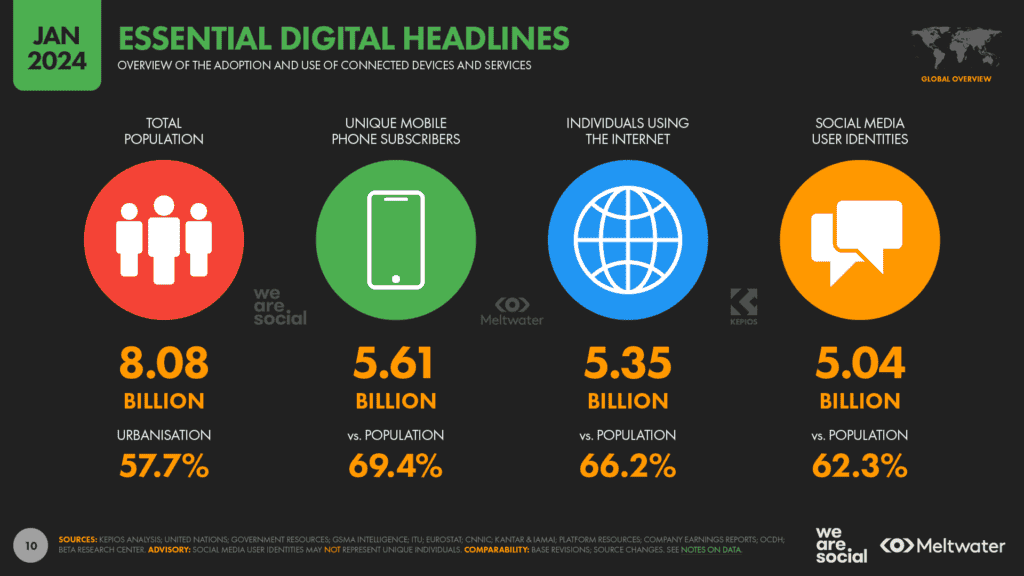Building Effective Data Science Teams
Mia Anderson

Photo: Building Effective Data Science Teams
Building Effective Data Science Teams: Key Strategies for Success
Data science has become a cornerstone of modern business strategy, with organizations leveraging data to drive innovation, optimize processes, and make informed decisions. However, the success of data science projects is not just about having the right technology or algorithms it heavily relies on building the right team. As businesses increasingly recognize the importance of data, the demand for skilled data scientists is growing, making the need for effective team structures and management even more critical.
Building an effective data science team can be challenging, but with the right approach, it can lead to remarkable success. In this article, we’ll explore strategies to create high-performing data science teams that drive business value and innovation.
Why Building the Right Data Science Team Matters
A data science team is more than just a group of analysts or engineers working on datasets. It is a diverse group of professionals who collaborate to extract meaningful insights from data, build machine learning models, and support decision-making across an organization. The right team can create solutions that improve customer experiences, optimize business operations, and fuel future growth.
However, data science projects can be complex, requiring expertise in different areas such as machine learning, statistical analysis, data engineering, and business acumen. A well-balanced team ensures that all these elements are present, making it easier to tackle various challenges effectively.
Key Factors in Building an Effective Data Science Team
Building a successful data science team requires more than just hiring skilled professionals. There are several key factors that contribute to the long-term success of such teams:
1. Diverse Skill Sets
One of the main challenges when building a data science team is ensuring a balanced mix of skills. A team of data scientists should not just consist of technical experts. In addition to strong technical skills, other areas that need to be covered include:
- Data Engineers: These professionals design, build, and maintain the infrastructure and pipelines that allow data scientists to access, clean, and analyze data effectively.
- Machine Learning Engineers: While data scientists are primarily focused on analysis, ML engineers work on building scalable machine learning models and deploying them into production.
- Business Analysts: These individuals bridge the gap between technical teams and business stakeholders, ensuring that data science projects align with organizational goals and provide actionable insights.
In addition to these specialized roles, having professionals with a deep understanding of the industry in which the business operates can help contextualize findings and ensure the data science efforts are valuable to the organization.
2. Collaborative Team Environment
Data science is inherently a collaborative field. Successful data science teams often work closely with other departments such as marketing, finance, and operations to understand business goals and create models that address real-world challenges.
Fostering a collaborative environment where team members can communicate openly, share knowledge, and provide feedback can result in faster problem-solving and more effective solutions. Tools like Slack, Jira, and collaborative platforms like GitHub can streamline communication and project management.
3. Clear Roles and Responsibilities
Another essential element in building a high-performing data science team is defining clear roles and responsibilities. While overlap in skill sets can occur, it’s important that each team member understands their primary responsibilities. A clear structure ensures accountability and prevents miscommunication.
Example:
- Lead Data Scientist: Oversees the overall strategy and manages a team of junior data scientists.
- Data Analyst: Focuses on cleaning, organizing, and performing exploratory data analysis.
- Data Engineer: Develops and maintains the data pipelines, making data accessible for the team.
- Business Intelligence Analyst: Translates data into insights that influence strategic business decisions.
By having a defined structure, the team can work together efficiently and deliver results more effectively.
4. Continuous Learning and Development
Data science is a rapidly evolving field, and to stay competitive, your team members need to keep up with the latest tools, techniques, and methodologies. Encouraging continuous learning not only helps individuals stay up to date but also contributes to the overall growth and success of the team.
Providing opportunities for team members to attend conferences, take online courses, or participate in hackathons can be a great way to promote learning. Additionally, creating a culture where knowledge sharing is encouraged allows everyone to benefit from each other's expertise.
5. Effective Leadership and Communication
Strong leadership is a critical component of a successful data science team. A good leader helps define the team's vision, prioritizes tasks, and provides guidance when challenges arise. They should also have a strong understanding of both the technical and business aspects of data science to ensure that projects stay aligned with the organization's strategic goals.
Effective communication is key to leadership. Data science projects can often involve complex concepts and jargon, so it’s important for leaders to communicate findings clearly to non-technical stakeholders. The ability to explain technical solutions in a way that resonates with decision-makers can be the difference between a project’s success and failure.
6. Diverse and Inclusive Culture
Building a team that fosters diversity and inclusivity can lead to better decision-making and more innovative solutions. Diverse teams bring together people with different perspectives, problem-solving approaches, and ways of thinking. This diversity can lead to more creative and out-of-the-box solutions to challenges, which is especially important in the ever-evolving field of data science.
Companies should make intentional efforts to hire from a diverse talent pool and create an environment where all team members feel valued and included. Emphasizing diversity in your data science hiring process can help your team better represent the various stakeholders your organization serves.
Structuring Your Data Science Team for Success
1. Team Size and Composition
When structuring your team, it’s important to consider the size and complexity of your projects. Smaller teams may require each member to take on multiple roles, while larger teams may necessitate more specialized functions.
Typical Data Science Team Structure:
- Small Team: One lead data scientist, one data engineer, and one business analyst.
- Medium Team: One lead data scientist, two data scientists, one data engineer, and one business analyst.
- Large Team: One chief data officer, one lead data scientist, multiple data scientists and analysts, several data engineers, machine learning specialists, and business intelligence experts.
The goal is to ensure that your team can handle the volume, variety, and complexity of the data you deal with while maintaining agility.
2. Outsourcing vs. In-house Hiring
Some companies opt to outsource certain aspects of their data science needs, such as machine learning model development or data pipeline management, to external vendors or consultants. While this can be cost-effective in the short term, having an in-house team allows for more direct collaboration and alignment with the company’s long-term goals.
3. Agile Methodology in Data Science Teams
Data science teams often benefit from adopting agile methodologies, similar to those used in software development. Agile promotes flexibility, rapid iteration, and collaboration, allowing data science teams to adjust and evolve their work based on feedback and new insights. This is especially beneficial in dynamic business environments where priorities can change frequently.
Conclusion: Building High-Performance Data Science Teams
Creating a high-performing data science team is a complex but rewarding process. By assembling a diverse group of professionals, defining clear roles, encouraging collaboration, and fostering continuous learning, businesses can build data science teams capable of driving innovation and providing actionable insights. With the right leadership and structure in place, your data science team can deliver significant value to your organization and help you stay competitive in today’s data-driven world.
Call to Action:
Interested in learning more about optimizing data science teams for business success? Explore our other articles on data analytics, AI, and team building to unlock more insights and strategies.
FAQ Section
What skills should I look for when hiring a data scientist?
When hiring a data scientist, look for proficiency in statistical analysis, machine learning, and programming languages like Python or R. Strong problem-solving skills, a solid understanding of business, and the ability to communicate findings to non-technical stakeholders are also essential.
How do I ensure my data science team collaborates effectively?
Encourage open communication through regular meetings, use collaborative tools like Slack or Jira, and create a culture that values knowledge sharing. Fostering teamwork and setting clear expectations for roles and responsibilities can also enhance collaboration.
How do I measure the success of a data science team?
Success can be measured by evaluating the impact of data science projects on business objectives, such as increased efficiency, improved customer experience, or higher revenue. Regular feedback from stakeholders and team members can also provide insights into the team's effectiveness.
Marketing
View All
January 22, 2025
The Future of Digital Marketing RevealedExplore where digital marketing is headed in the next decade. From AI to VR, see what’s shaping the future of online marketing. Don’t get left behind!
Mia Anderson

January 21, 2025
Why Digital Marketing is Vital for SMBsDiscover why small businesses must adopt digital marketing in 2024. Learn tips and tactics to compete in the digital age. Take your business online today!
Mia Anderson

January 23, 2025
Social Media in Digital Marketing 2024Learn how social media is revolutionizing digital marketing in 2024. Boost your brand with actionable tips for viral campaigns!
Mia Anderson
Entertainment
View AllExplore the latest trends in fan fiction for 2024. Learn what fan fiction is, its impact on media, and why it’s a thriving creative outlet. Read now!
Mia Anderson
Discover the best streaming services of 2024 with our in-depth reviews. Find out which platforms offer the best value and why you should choose them. Read now!
Mia Anderson
Discover the top podcasting trends of 2024 and stay ahead in the industry. Learn how to leverage new insights click now to future-proof your podcast!
Mia Anderson
Unlock the secrets to an unforgettable movie trivia night with our ultimate guide. Get tips, trivia questions, and game ideas to boost your event's fun!
Mia Anderson
Automotive
View AllUnlock the secrets to getting top dollar for your car! Prep, price, and promote effectively.
Read MoreLearn how second-life EV batteries are helping reduce environmental impact by providing sustainable energy solutions.
Read MoreCompare trends in luxury and budget EV offerings. Find out which one suits your needs and budget in 2024.
Read MorePolular🔥
View All
1
2
3
4
5
6
7
9
10
Technology
View All
September 15, 2024
Discover the Best Project Management Software of 2024
Discover the best project management software of 2024! Uncover top picks, latest trends, and expert reviews. Click now to streamline your projects!

December 10, 2024
Best Tech Gadgets for Remote Workers in 2024 – Don’t Miss These!
Boost your productivity with the top tech gadgets for remote work! Click to discover must-have tools to enhance your work-from-home setup.

August 29, 2024
Top SaaS Trends Shaping Business Success in 2024
Discover the latest SaaS trends revolutionizing businesses in 2024. Learn how these innovations can boost efficiency and drive growth. Read now!
Tips & Trick






















